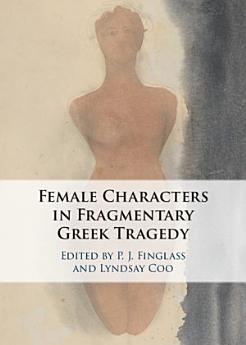Female Characters in Fragmentary Greek Tragedy
Über dieses E-Book
Autoren-Profil
P. J. Finglass is Henry Overton Wills Professor of Greek and Head of the Department of Classics and Ancient History at the University of Bristol. He has published Sophocles (2019) in the series Greece and Rome New Surveys in the Classics, as well as editions of Sophocles' Oedipus the King (2018), Ajax (2011), and Electra (2007), of Stesichorus (2014), and of Pindar's Pythian Eleven (2007) in the series Cambridge Classical Texts and Commentaries; edited The Cambridge Companion to Sappho (with Adrian Kelly, 2019) and Stesichorus in Context (Cambridge, 2015); and edits the journal Classical Quarterly.
Lyndsay Coo is Lecturer in Ancient Greek Language and Literature at the University of Bristol. Her research focuses on lost and fragmentary ancient Greek tragedy and satyr play. She is writing a commentary on Sophocles' fragmentary Trojan plays, and is co-editor (with Anna Uhlig) of Aeschylus at Play: Studies in Aeschylean Satyr Drama (2019).






